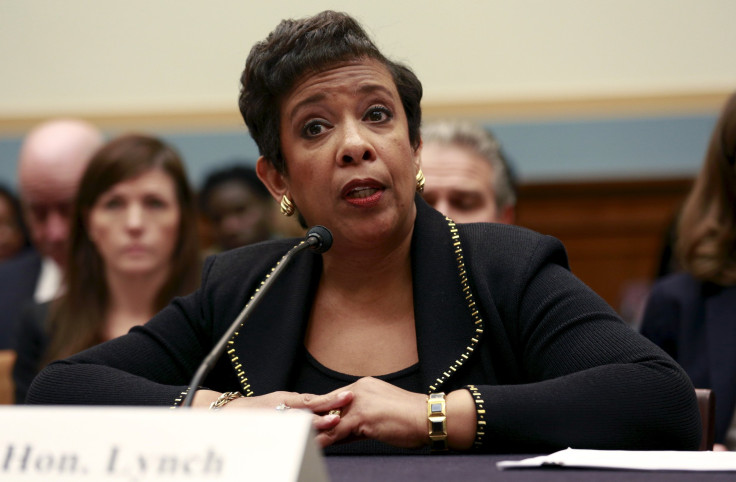Loretta Lynch Dismisses 'Ferguson Effect' On Policing: No Data Supports That More Police Scrutiny Increases Crime

U.S. Attorney General Loretta Lynch said that no data is available to support the so-called “Ferguson Effect," -- the idea that the heightened scrutiny of police officers has led crime to increase, according to the Huffington Post. Speaking before the House Judiciary Committee on Tuesday, Lynch said while there are anecdotal stories, there isn’t any hard data that says Americans are less safe because of a national debate over the use of force by police.
"Our discussion about civil rights and the appropriate use of force and all police tactics can only serve to make all of us — community members and police officers — safer," Lynch said. "While certainly there might be anecdotal evidence there, as all have noted, there's no data to support it, and what I have seen in my travels across this country is the dedication, the commitment and the resolve of our brave men and women in law enforcement to improving policing, to embracing the 21st Century Task Force recommendations, and to continuing to have a dialogue that makes our country safer for all." Lynch went on to say, referring to the task force created by President Barack Obama to bridge the divide between police officers and the communities they serve.
The “Ferguson Effect” references the mass protests that occurred in Ferguson, Missouri, in 2014 after Michael Brown, an unarmed black man, was shot by a white police officer. In October, FBI Director James Comey said this additional scrutiny is at least partly behind the increase in violent crime in some American cities, the New York Times reported.
Comey said police officers are less aggressive because of increased scrutiny, but has also said there is no data to back that theory up. Obama has said that while crime is up in some cities, there is no evidence of a new wave of violent crime sweeping the country, the Hill reported.
FBI director doubles down on split with White House over "Ferguson effect" https://t.co/2dHNYO06vv pic.twitter.com/2CaIYD15Oi
— The Hill (@thehill) November 14, 2015
“What we can't do is cherry-pick data or use anecdotal evidence to drive policy or to feed political agendas,” Obama said in October.
© Copyright IBTimes 2024. All rights reserved.





















